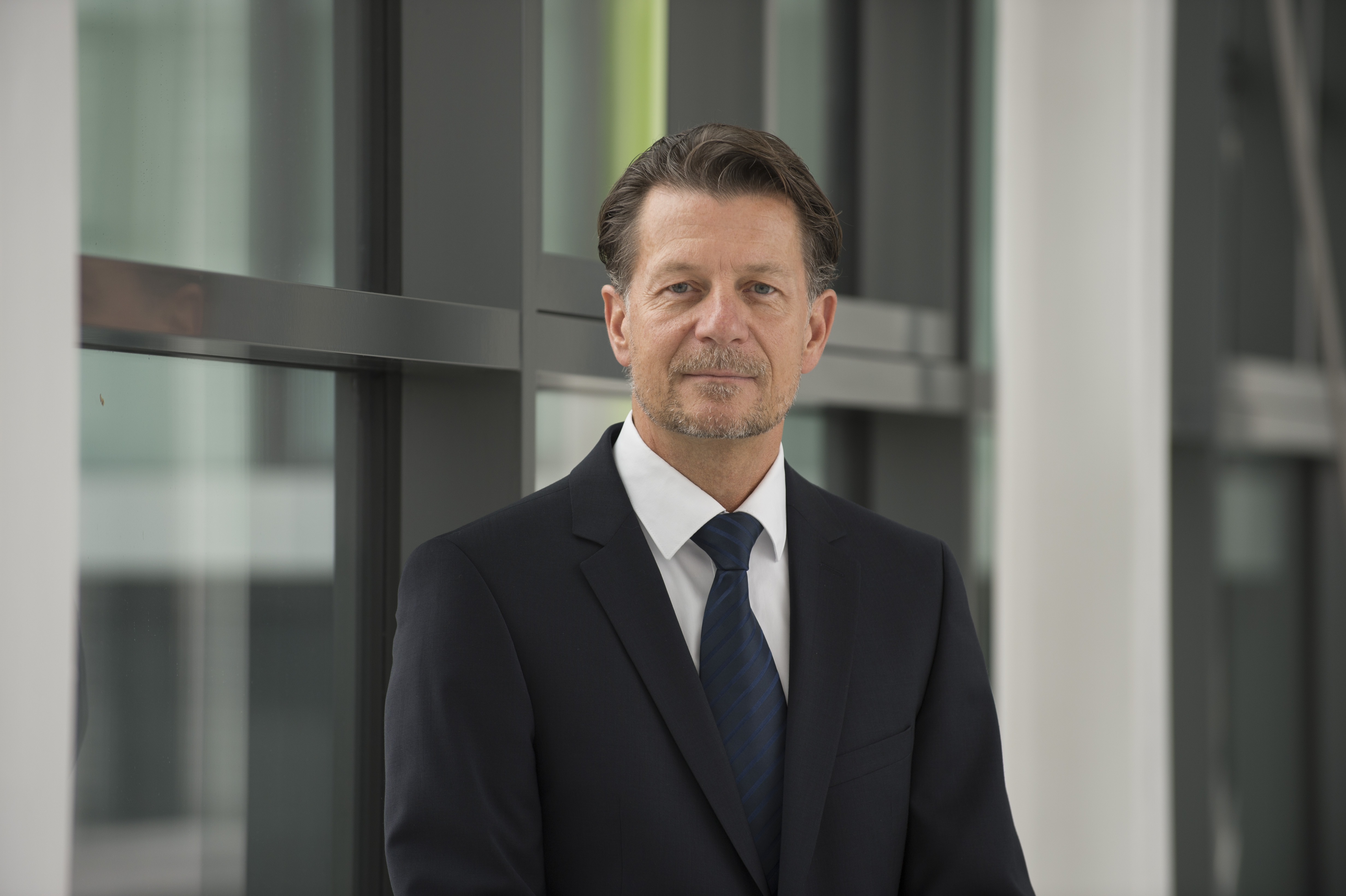Markus Wolperdinger takes over the management of Fraunhofer IGB
Dr. Markus Wolperdinger has taken over the management of the Fraunhofer Institute for Interfacial Engineering and Biotechnology IGB as of March 1, 2018. Wolperdinger, who has a doctoral degree in chemistry and many years of industry experience in the field of industrial biotechnology and plant construction, is already very familiar with the Institute through his work on the IGB Board of Trustees. Wolperdinger also played a major role in the establishment of the Fraunhofer Center for Chemical-Biotechnological Processes CBP in Leuna.
With effect from March 1, 2018, Dr. Markus Wolperdinger has taken over the management of the Fraunhofer Institute for Interfacial Engineering and Biotechnology IGB. “This step opens up new creative possibilities for me at the interface of applied research and industrial implementation of the results, an area that has always been of great importance to me,” Wolperdinger explains his motivation. He is already familiar with the Institute from joint activities with Fraunhofer IGB in the past and his activities on the Institute's Board of Trustees. “I know what potential the Institute has and I am very much looking forward to working with the staff to make full use of the Institute's range of opportunities,” says the new Director.
Wolperdinger, who has a doctoral degree in chemistry, combines many years of experience in the field of industrial biotechnology, large-scale plant construction and the development of highly innovative measuring systems for the industrial gases industry. His international career has led Wolperdinger from development, sales and management roles at innovative start-up companies and in medium-sized industry to leading positions in globally operating industrial groups. Due to his broad-based activities with high-level responsibilities, he brings valuable knowledge and an extensive network to IGB. “It is important to me that we understand the wide range of competencies at the IGB as comprehensive opportunities for value creation and that we can offer our customers and partners integral solutions for the questions they formulate that they do not receive elsewhere. My goal is that the Institute can consistently offer the various dimensions of process development and scaling in its business fields – from the laboratory to the pre-industrial scale – in order to create a unique selling point for the IGB,” Wolperdinger outlines his strategy.
In order to achieve this, Markus Wolperdinger will build on the potential of IGB's versatile competencies to find solutions to global challenges such as climate change and scarcity of resources with sustainable production and integrated, cycle-based processes. “I also see it as an important task to bring relevant future trends into line with the thematic focuses of IGB. A keyword here is “Industry 4.0” and the associated question of what contribution the Institute can make,” says Wolperdinger. He also sees attractive business opportunities in the fields of medicine and health, for example with new technologies in molecular diagnostics or the manufacture of personalized products – concepts that he intends to expand further.
Markus Wolperdinger already knows the Institute very well. He has been a member of the Board of Trustees of the Fraunhofer IGB since 2011 and its chairman since 2014. On behalf of industry, he had already played a major role in the successful establishment and financing of the Fraunhofer Center for Chemical-Biotechnological Processes CBP in Leuna. Wolperdinger continued his long-standing and intensive cooperation with IGB when he moved to the Engineering Division of Linde AG in Dresden in 2011, where he shortly afterwards took over the management of the biotechnology plant product line worldwide. Together with Linde, Wolperdinger accompanied the development of CBP as general contractor for plant engineering and was involved in a number of joint research projects with IGB. Most recently, he was responsible at Linde AG headquarters for coordinating public funding for worldwide development projects.
 Fraunhofer Institute for Interfacial Engineering and Biotechnology IGB
Fraunhofer Institute for Interfacial Engineering and Biotechnology IGB